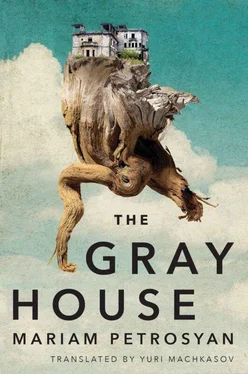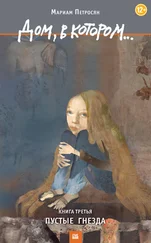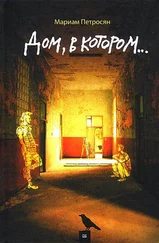He was exaggerating about vitality. I'd first met Blind in the hospital wing. We were roommates. In the three days we spent there, he didn't say a single word. He also almost never stirred, so I came to regard him as just a part of the landscape. He was gaunt, but not tall, his jeans would fit a thirteen-year-old, and both of his wrists together made one of mine. Next to him I was the picture of health. I did not know who he was then, so I just figured he was being bullied a lot. And now, watching Black, I thought that if anyone looked like a Leader in the Fourth, it was certainly him, and not Blind.
“It's so weird,” I said. “I don't get it.”
“Yep. See, you caught it as well.” Tabaqui nodded. “Of course it's weird. You look at Black, this tower of power, and even he is walking in the shadow of Blind. That's what you meant, right? He's such a commanding presence. Regal, even. Right? We're all amazed. We live side by side with him, and all day, every day, we are amazed. How come—here he is, and yet he's not the Leader? And the one who's the most amazed is Black himself. He wakes up at dawn, casts his gaze about, and inquires, ‘For why?’ Day after day after day.”
“Can it, Tabaqui,” Noble said. “That's enough.”
“I am angry,” Tabaqui explained, draining his coffee. “Can't abide those apathetic types.”
I finished my coffee as well, along with my second cigarette. It was clearly time to go. I didn't want to, though. It was so nice in the Coffeepot. To sit here, to smoke openly, to drink coffee—which, for the denizens of the First, was a kind of mild arsenic. The only thing nagging me was the thought of Tabaqui telling someone else of my transfer. I figured I should leave before that happened. Tabaqui, in the meantime, took out a pad and started scribbling in it with a pen that formerly rested behind his ear.
“Right... Right... ,” he was mumbling. “Of course... And don't forget this... Naturally. Now that is completely out of the question.”
Noble was spinning the lighter on the edge of the table.
“I think I'd better go,” I said.
“Just a sec.” Tabaqui scribbled for a while longer, then tore out the page and handed it to me. “It's all here. The basics, at least. Study it, remember it, use it.”
I stared at his chickenscratch.
“What's this?”
“A guide,” Tabaqui sighed. “The essential information. Survival rules for a migrant. On top: in case of transfer to us. Underneath: to the Third.”
I looked closer.
“Something about plants... Watches... And what do the linens have to do with it? don't you get them as well?”
“We do. But it's best not to leave behind anything that bears your imprint.”
“What imprint? It's not like I smear shoe polish on myself before going to bed.”
Tabaqui gave me that look again—of a grizzled veteran aggrieved by much wisdom.
“Look, it's simple. Everything that's yours you take with you. Whatever you cannot take you destroy. Nothing that belonged to you must remain. What if you were to die tomorrow? Would you like a black ribbon tied to your cup, accompanied by a disgusting note along the lines of The memory of you is forever in our hearts, O prodigal brother of ours ?”
I shuddered.
“All right. I get that. But... watches?”
A transferee to the Fourth is strongly advised to rid himself of any and all devices designed to measure time: wristwatches, stopwatches, alarm clocks, precision chronographs, etc. Any attempt to conceal such an item shall be immediately uncovered by the resident expert and, to prevent reoccurrences of this highly provocative behavior, the offending person shall be assigned a penance devised and approved by said expert.
For anyone being transferred to the domain of the Third, a.k.a. “the Nesting,” it is advisable to acquire the following items: a set of keys (provenance unimportant), two flowerpots in good condition, no fewer than four pairs of black socks, an amulet against allergies, earplugs, a copy of The Day of the Triffids by J. Wyndham, and an old dried plant collection.
Irrespective of the above, anyone being transferred anywhere is advised not to leave in the quarters being vacated: clothes, linens, personal effects, items created by the person himself, and any traces of organic matter—hair, nails, saliva, semen, used bandages, Band-Aids, or handkerchiefs.
I didn't sleep that night. I listened to the breathing of those who did and stared into the darkness of the ceiling until it started lightening up and revealing familiar cracks. Then I thought that this was the last time I was seeing them and counted them all again. Then the dial of the big clock on the wall became discernible, but I purposefully avoided looking at it. This was the most unbearable night I'd ever spent in the House. By the wake-up bell I was already half-dressed. It took me all of ten minutes to gather my things. I packed a change of underwear, pajamas, and textbooks, making sure not to take anything that was bearing a number. Just as I had suspected, Shark did not appear at the assigned time. The group left for breakfast without me. They returned and wheeled off to class, and still he hadn't come. Not at ten, not at eleven, not at twelve.
By half past twelve I had gnawed off all my fingernails, wheeled around the dorm a couple hundred times, and realized that I was going to crack soon. I took out Tabaqui's “migrant's guide,” reread it, then stripped the linens off the bed. I packed them too, then gathered all tissues in the vicinity of my bed and nightstand. Stopped my watch and buried it at the bottom of the bag. Took the cigarettes out of the secret place, lit up, and started figuring out how to assemble a plant collection from materials at hand. That's when Shark arrived, with a surly Case in tow, for help with carrying, and Homer, for help with seeing off. Homer was not able to perform his duties with dignity, though. The cigarette proved too much for him. He bolted as soon as he saw it. He didn't even say good-bye. Shark ignored the cigarette but inquired what the hell did I take off the linens for.
“They're fresh,” I said. “Only changed yesterday. Why use an extra set?”
He looked at me like I was mental and grumbled something about “those Pheasant tricks,” even though he himself had come down on me yesterday for using the word. I told him I could leave the linens behind if it was such a big deal. He told me to shut up.
Case maneuvered my wheelchair, bumping it against the beds, and wheeled me out to the hallway, where he entrusted me into Shark's care and returned for my bag. Then Shark was rolling the wheelchair while Case was lugging the bag. We covered the familiar ground quickly and then, no matter how I tried to catch a glimpse of something identifiable, I couldn't recognize anything. It was as if all the drawings and markers had changed since last night. I missed both the Second and the Coffeepot and realized it only when we stopped in front of the door with the enormous 4 outlined on it in chalk.
The House sits on the outskirts of town. The neighborhood is called the Comb. The long buildings of the projects here are arranged in jagged rows, with empty cement squares between them—the intended playgrounds for the young Combers. The teeth of the comb are white, they stare with many eyes, and they all look just the same. In places where they haven't sprouted yet there are the fenced vacant lots. The piles of debris from the houses already knocked down, nesting grounds for rats and stray dogs, are much more appealing to the young Combers than their own backyards, the spaces between the teeth.
In the no-man's-land between the two worlds—that of the teeth and of the dumps—is the House. They call it Gray House. It is old, closer in age to the dumps, the graveyards of its contemporaries. It stands alone, as the other houses shun it, and it doesn't look like a tooth, since it is not struggling upward. Three stories high, facing the highway, it too has a backyard—a narrow rectangle cordoned off by chicken wire. It was white when built. It has since become gray, and yellowish from the other side, toward the back. It is bristling with aerials, it is strewn with cables, it is raining down plaster and weeping from the cracks. Additions and sheds cling to it, along with doghouses and garbage bins, all of it in the back. The facade is bare and somber, just the way it is supposed to be.
Читать дальше

![Мариам Петросян - Дом, в котором… [Издание 2-е, дополненное, иллюстрированное, 2016]](/books/62844/mariam-petrosyan-dom-v-kotorom-izdanie-2-thumb.webp)









